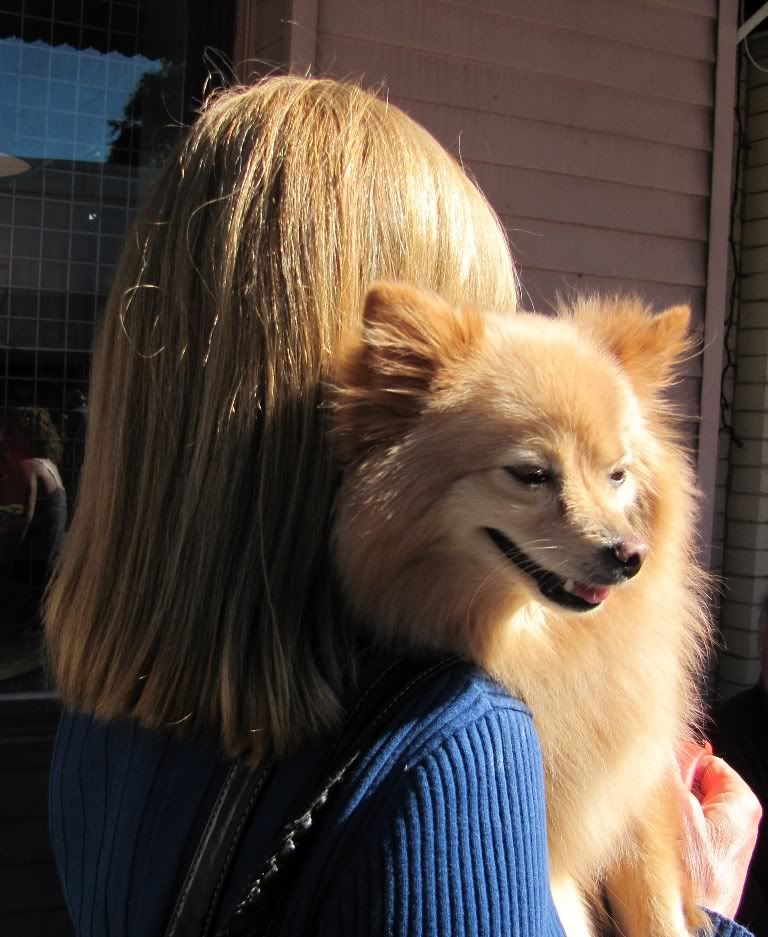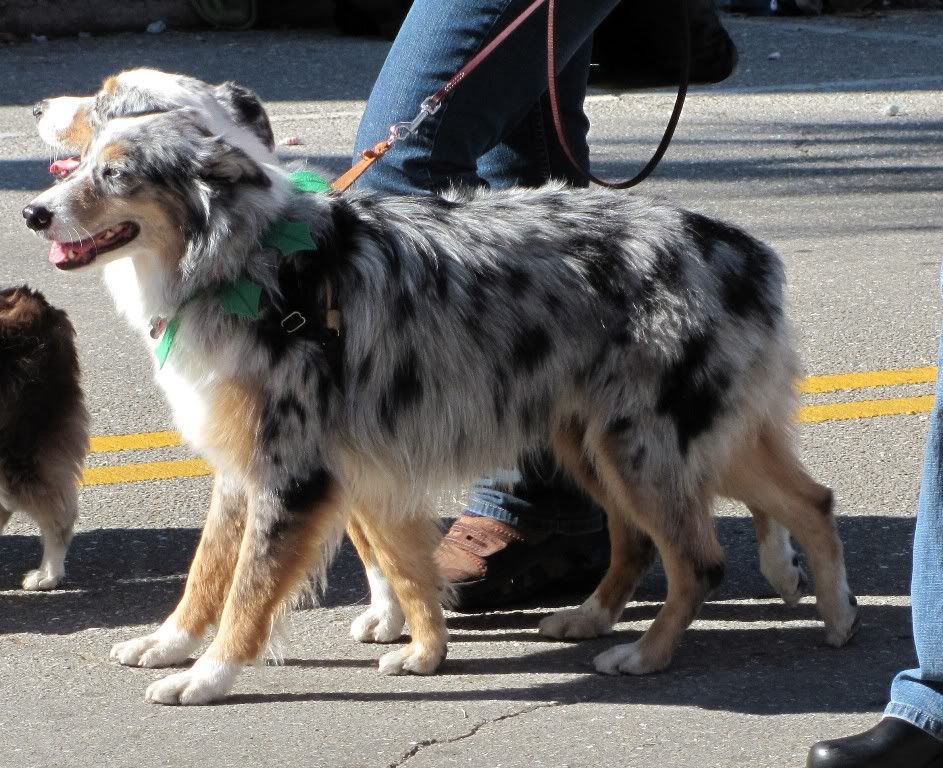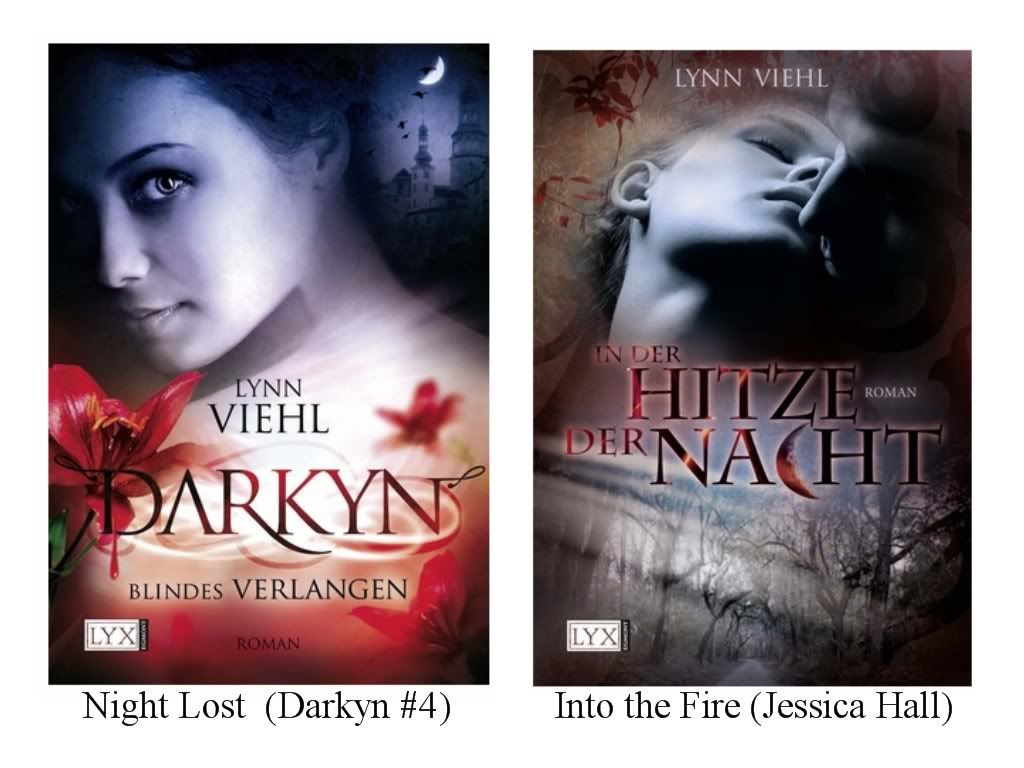You've all had a week to recover from NaNoWriMo, so I think it's safe to discuss what happens now with your November novel. What follows is my advice as a professional novelist. Blow me off if you want, but I do this for a living, and I think my approach is at least worth considering.
Let's talk about length for a moment. 50,000 words is a novel-length story, but one with a very limited print market. There are a few publishers who will consider 50K novels (Harlequin) and some print mag and antho markets also willing to look at that length, but most publishers are looking for novels in the 75K - 100K range. That said, e-publishers are much more flexible on length, and I believe most are quite receptive to considering novels in the 50K range (and some do print as well as e-book format.)
Don't panic that you haven't written enough for the traditional print market, because unless you are an expansive, thoroughly detail-oriented, get-it-right-the first-time type of writer, your first draft of a novel is likely going to get longer after you edit and revise it.
So that's length, and now I'd like you to forget about that for the time being, because you have more important things to do than count words. You have a first draft to read, edit, buff, polish and prepare for submission.
First question you need to ask yourself: Is the novel finished? If the answer is no, stop reading this post and go finish writing your book. And don't argue with me, because an unfinished story is not a book; it's a partial manuscript. When you've got a completed first draft, then you can come back and go to the next step.
Next step (if you haven't taken it already) is to put your completed novel aside and take a break from it. Stick it in your file or desk, work on something else and put a little distance between you and the story. How long? Everyone is different, but the shortest break I take is three days, and the longest is a month. This time away from the story is important because you need to be as objective as possible, and you usually can't do that if you're up to your ears in the story all day every day.
Once you feel you've taken a decent break, take out your first draft and read it through one time, start to finish, without editing or making any notes on it. You're reading the manuscript this time to get the big picture, which hopefully will allow you to answer these questions: Is this story worth more of your time? Is it still as exciting as it was when it was just an idea in your head? Are you itching to get back to work on it? And, finally, is it a story you believe you can sell?
That last question is a killer, I know. It requires you to take a very hard look at yourself as well as the work. But if you don't believe in this novel now, you're going to have a very tough time selling it to someone else. Now is the time to decide if it's something you want to actively pursue for publication, or something you need to put away.
Btw, if you ever want to come over to my house and see the eight boxes of manuscripts, short stories and other works I've put aside because in the end I didn't believe in them, I didn't like how they turned out or there simply wasn't a market for them, I'll haul them down from the attic for you. P.S., the stories and the original proposal for my Darkyn novels lived on one of those boxes for six years, so don't think anything you set aside is wasted or garbage. Sometimes you have to wait for the market to catch up with you.
Once you've decided that your first draft answers all those questions with a solid
yes, then it's time to prepare for an intensive edit. My method is to go through the entire manuscript again, start to finish, and decide what stays and what goes. I use a highlighter to slash through large portions of the story that bore me, are clunky or just don't make sense; these are portions that have to be reworked or tossed out and written over from scratch.
For smaller/shorter type-in corrections for things like grammar stumbles, misspellings and places where I need to clarify, expand or otherwise clean up things for the reader I use a red pen to circle things and write notes on the page. I also keep a notepad handy for things like name changes (it's inevitable that I'll find at least one character whose name I begin to hate for some reason and decide to change), logic problems that will affect other portions of the story (when you change something in one chapter, odds are you'll have to change it in at least two or three more past that point), and facts that need to be checked (because while you're almost sure that huge clock tower in London is named Big Glen, it wouldn't hurt to look it up.)
Common things to look for: too much explanation/too little action, telling instead of showing, eye references, awkward sentence constructions, identical dialogue tags (he said, then she said, then he said, then she said, then they said, etc.), housekeeping dialogue (
Hi, how are you? I'm fine, and you? Wonderful. Isn't the weather nice? Yes, it is. Lather, rinse, repeat), characters standing around and doing nothing, characters sitting around and doing nothing, characters whose names are too similar and therefore too easy to mix up, too much narrative, As-You-Know-Bob dialogue info dumps, any other kind of info dump, sparse descriptions, over-done descriptions, lags in the pacing of the story, scenes or chapters in which nothing much happens, obvious filler, and weed words you've overused or echoed too many times.
You may want to run a spell check at this point, too, but spell checking can be done at any point. This is one of those choices you'll make based on how you like to edit. To save time I've stopped spell checking until I'm down to the very last draft, but if you feel more comfortable doing several, go for it.
Once you've completed your first pass, take the manuscript chapter by chapter and do your rewrites, your toss-outs and write-overs, your type-ins, etc. Go slowly and work carefully, and no, it's generally not much fun, but it's a necessary skill you need to develop and constantly work on improving -- and you only get better with practice, practice, practice.
Once you're finished your second draft, take a break for at least 24 hours, again, to put a little distance between you and the story. When the time is right, read through your revised manuscript and evaluate your results.
Some writers get away with doing a one-pass edit; some have to repeat the editing process a few times before they feel they have a book that is ready to be read. The danger here is that you can get caught in an endless editing loop where you read, you edit, you rewrite, you read, you edit, you rewrite, and suddenly it's ten years later and you're still working on the same book (what I think of as Book of Your Heart syndrome.) Your novel isn't going to get published if no one ever sees it, so keep the editing to a reasonable amount/time frame.
Once you have the final/revised version of your manuscript, hopefully not ten years from now, you have several choices: 1) you can do nothing with it, 2) you can ask a trusted family member or friend to read it, or 3) you can dive into the submission process. You can also burn it, bury it in the backyard or lock it in a bank vault in a box that says
Do not open until after I'm dead.If you decide to do nothing with it, don't beat yourself up. Remember those eight boxes in my attic; I'm not going to throw any stones. Learn from the experience and use it to write a better story next time.
I think the most popular choice (especially for first-time novelists) is to ask someone to read it. Obviously you want someone who can give you some constructive feedback without ripping your manuscript to shreds. I had my older brother read my first novel, and he was kind and considerate with his very light critique (and the book was really terrible, but I was just a thirteen-year-old kid, and it meant the world to me, and he knew that.) An ideal first reader gives you an honest reaction without being brutal about it, and that takes some doing, so be selective.
I won't kid you; it's very tough to go through the submission process. Rejections can be harsh and demeaning. You try not to get your hopes up, but your hopes thumb their nose at you and do what they want. There's nothing quite like being squashed by the very people you wanted to impress. It would be safer -- and saner -- not to subject yourself and your hard work to the impersonal, indifferent ego-thrashings Publishing loves to hand out. And if you don't try, you'll never know, and it's as simple as that.
I know a lot of writers see the new trend of no-cost digital self-publishing as a wonderful shortcut around the submission process, and the editorial process, and all the other unpleasant, tedious aspects of traditional publishing that writers hate. I don't disagree with you. Self-publishing is superfast, and now anyone can do it. You don't have to put up with a single rejection or some idiot editor telling you what you can or cannot write, and that's definitely got to be good for the ego. Those are the same reasons we called it vanity publishing back when I started out.
Whatever you decide to do, think about it seriously, and then start out as you mean to go on.
Now it's your turn: are you editing your NaNo novel yet? Ready to send it out or bury it in the backyard? Where are you planning to go from here? Let us know in comments.
 Sorry I'm late posting; due to some connection problems we're currently on dial-up only, and will likely remain that way until my guy figures it out, or the cable company sends someone to check out our equipment (at this point, looks like Saturday.)
Sorry I'm late posting; due to some connection problems we're currently on dial-up only, and will likely remain that way until my guy figures it out, or the cable company sends someone to check out our equipment (at this point, looks like Saturday.) Toward the end of December I always catch myself thinking about what sort of year I've had. There are landmarks like my blog and my work backups that chronicle my writing journey, which is ever an interesting one. Often I count the number of personal art and writing journals I fill up in twelve months to measure how often I needed to retreat and work things out in private; I used twenty-three for 2010 (about average; a bad year can result in forty or more.)
Toward the end of December I always catch myself thinking about what sort of year I've had. There are landmarks like my blog and my work backups that chronicle my writing journey, which is ever an interesting one. Often I count the number of personal art and writing journals I fill up in twelve months to measure how often I needed to retreat and work things out in private; I used twenty-three for 2010 (about average; a bad year can result in forty or more.)  I admit, I'm a calendar junkie. Every year I go out and buy a year's supply (I wait until after January 1st so I can get them at a discount) for the entire family. They are not as vigilant as I am about keeping them updated -- the slackers -- but it satisfies my ever-constant need for organization. If you're going to the brick and mortars, BAM and B&N always seem to have a nice selection, and Borders usually offers theirs with excellent discounts after January 1st.
I admit, I'm a calendar junkie. Every year I go out and buy a year's supply (I wait until after January 1st so I can get them at a discount) for the entire family. They are not as vigilant as I am about keeping them updated -- the slackers -- but it satisfies my ever-constant need for organization. If you're going to the brick and mortars, BAM and B&N always seem to have a nice selection, and Borders usually offers theirs with excellent discounts after January 1st. 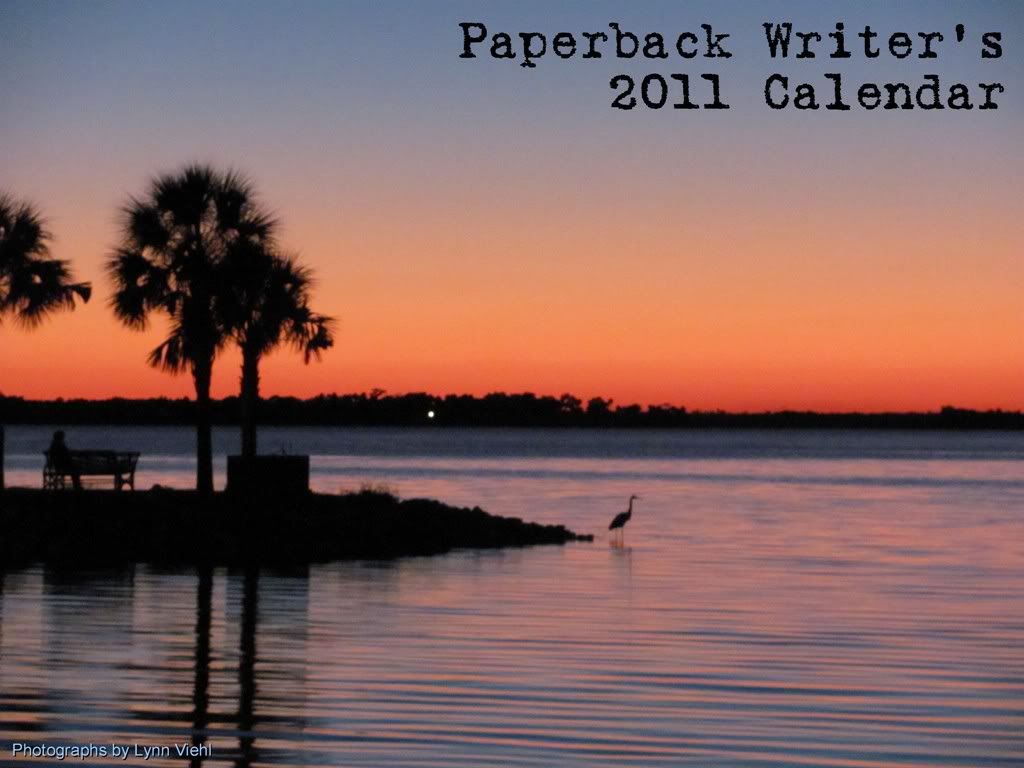 The whole thing took about thirty minutes, and the resulting calendar came out great,
The whole thing took about thirty minutes, and the resulting calendar came out great,  The simple but wonderful
The simple but wonderful 
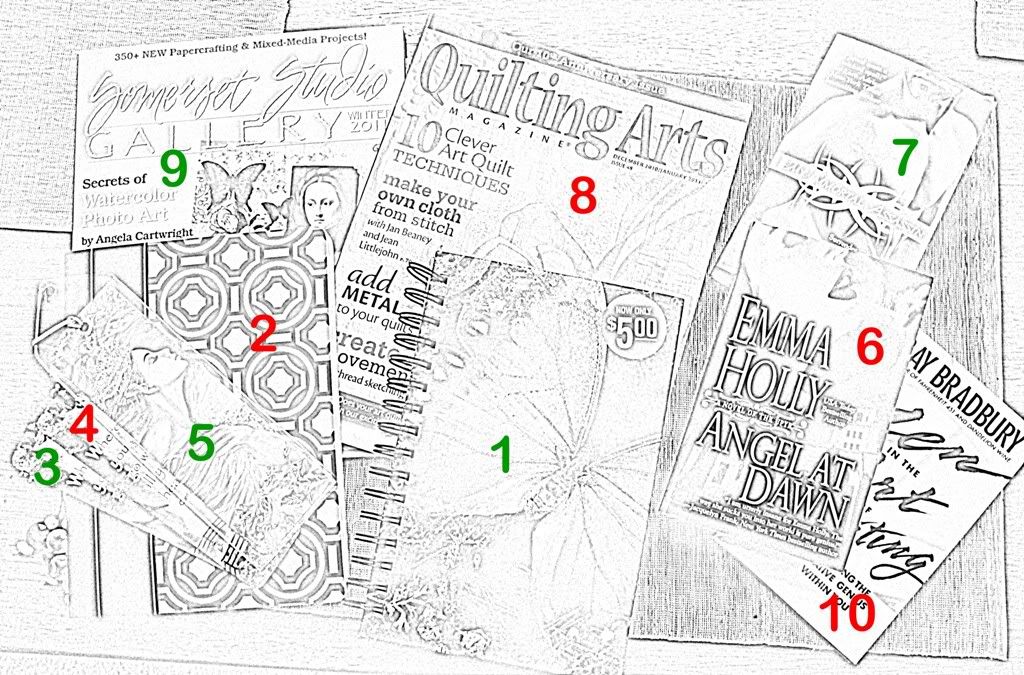
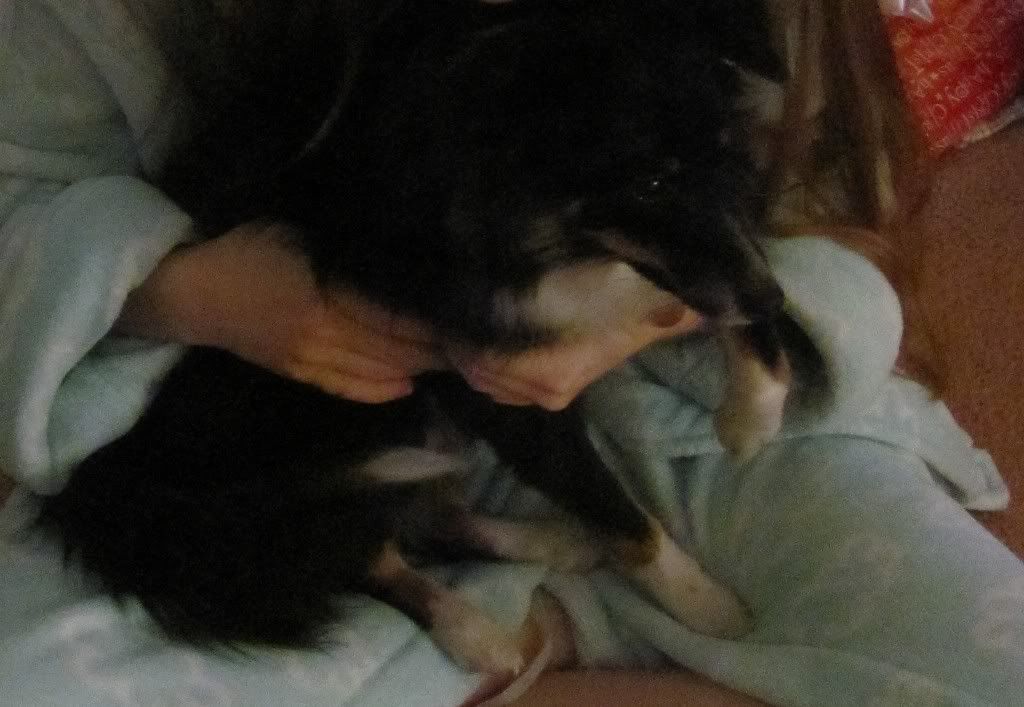 I hope everyone is keeping warm and enjoying their holidays. Our college kid made it home Christmas Eve night, which was all my guy and I wanted from Santa. The next day was quiet but relaxing, with the weather keeping us all inside to hang out with the kids, play with the dogs and take naps on the couch. We expect to do the same today, so it's been pretty much the perfect Christmas at Casa PBW.
I hope everyone is keeping warm and enjoying their holidays. Our college kid made it home Christmas Eve night, which was all my guy and I wanted from Santa. The next day was quiet but relaxing, with the weather keeping us all inside to hang out with the kids, play with the dogs and take naps on the couch. We expect to do the same today, so it's been pretty much the perfect Christmas at Casa PBW.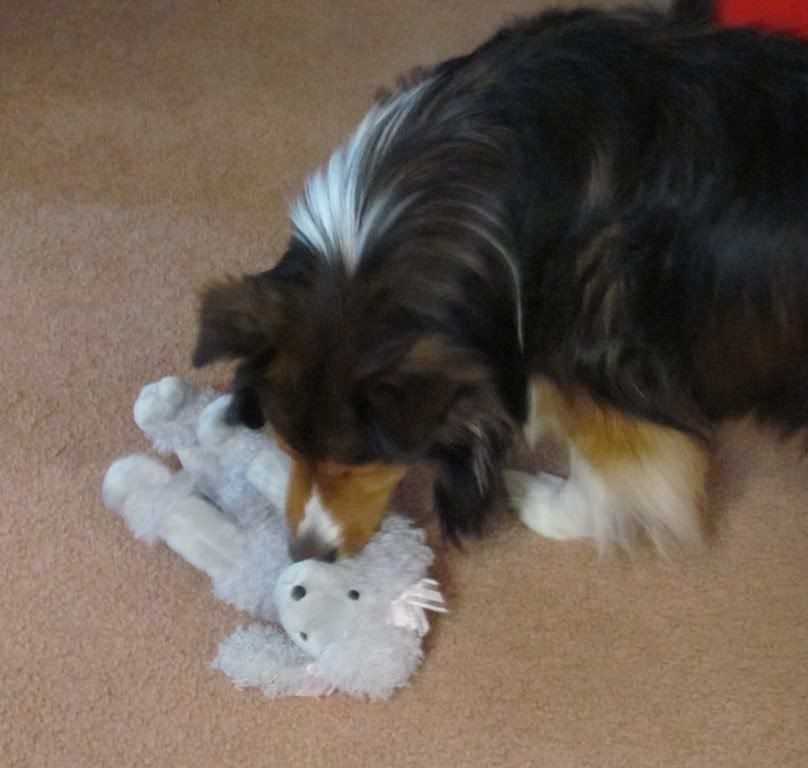 We finally found something our fearless and feisty new pup is afraid of: wearing jingle bells. Because I'm becoming that classic old lady who dresses her pets, I got a little velvet collar with tiny bells to put around the puppy's neck (Cole got a more manly John Deere neck scarf.) Skye skittered around, tail between her legs, until finally she crawled onto my daughter's lap and refused to budge. So now I have a very nice velvet and bells ornament for the tree.
We finally found something our fearless and feisty new pup is afraid of: wearing jingle bells. Because I'm becoming that classic old lady who dresses her pets, I got a little velvet collar with tiny bells to put around the puppy's neck (Cole got a more manly John Deere neck scarf.) Skye skittered around, tail between her legs, until finally she crawled onto my daughter's lap and refused to budge. So now I have a very nice velvet and bells ornament for the tree.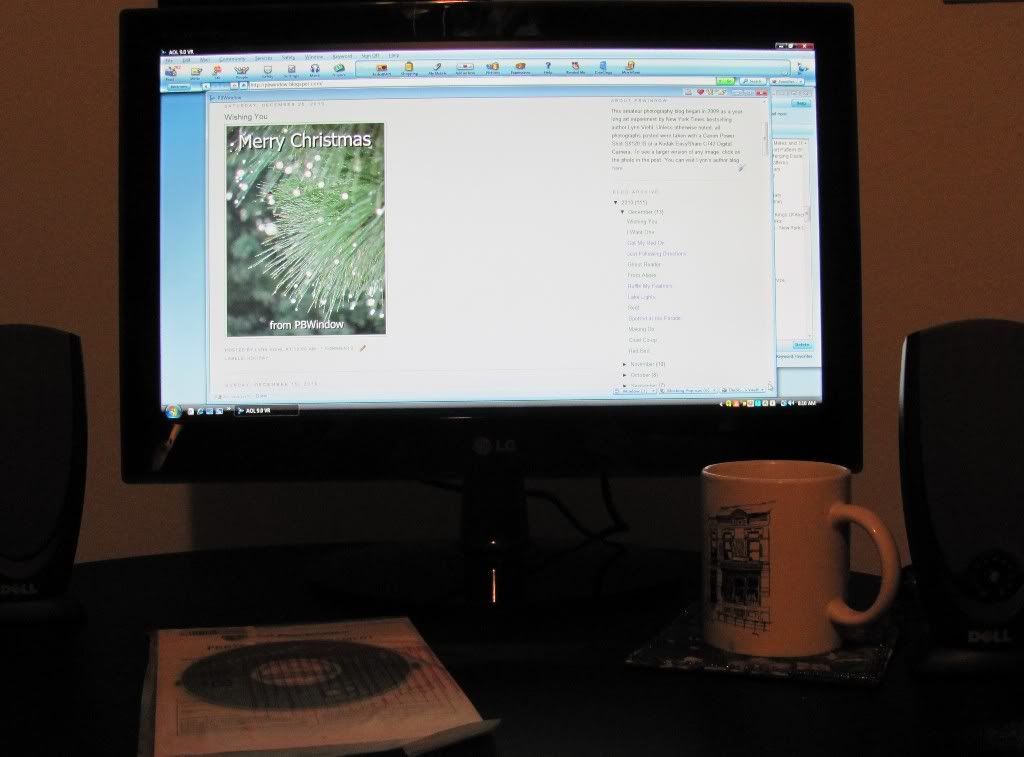 What I didn't expect to find in my stocking was a shiny new 20" monitor for my work computer, which will allow me to see everything on the screen without scrolling back and forth (and replaces the monitor I've been using for the last six years, which was six inches smaller.) This will also be invaluable now that I have to do all my copy-edits electronically, as I can see the page and the editor's comments at the same time without reducing the size of the page. My guy also gave me a beautiful new steel filing cabinet, which sounds dull but for me is the same as getting a diamond bracelet is for other women.
What I didn't expect to find in my stocking was a shiny new 20" monitor for my work computer, which will allow me to see everything on the screen without scrolling back and forth (and replaces the monitor I've been using for the last six years, which was six inches smaller.) This will also be invaluable now that I have to do all my copy-edits electronically, as I can see the page and the editor's comments at the same time without reducing the size of the page. My guy also gave me a beautiful new steel filing cabinet, which sounds dull but for me is the same as getting a diamond bracelet is for other women.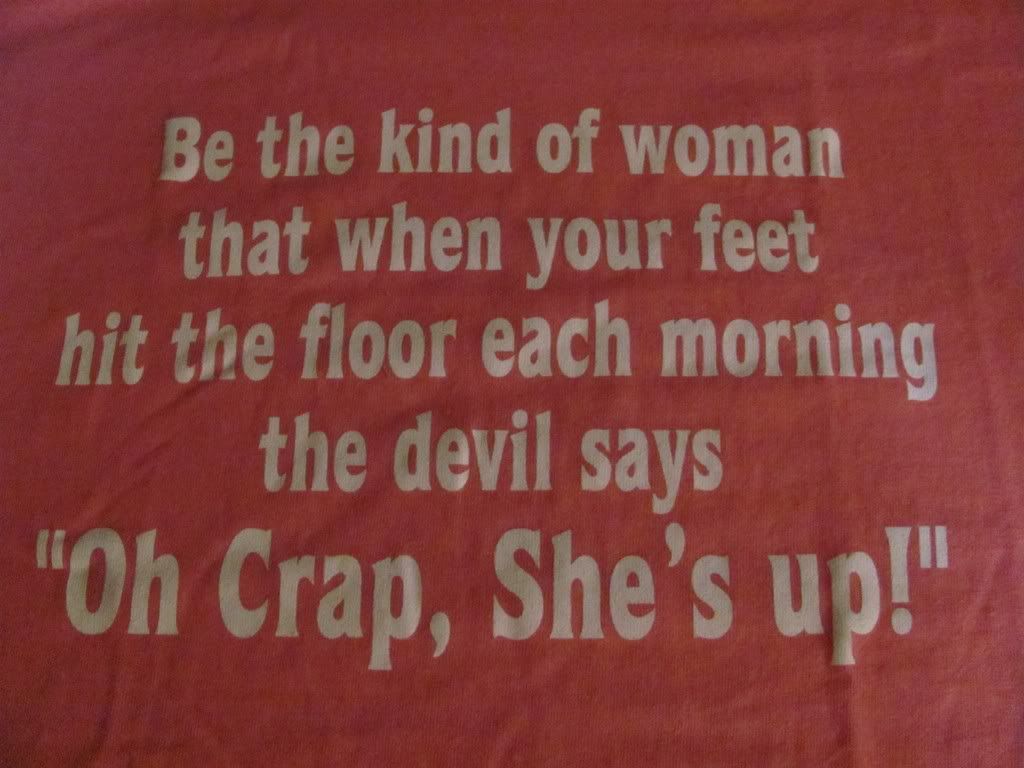
 The Publishing Fairy and I had a long talk last night, during which I presented her with my wish list.
The Publishing Fairy and I had a long talk last night, during which I presented her with my wish list.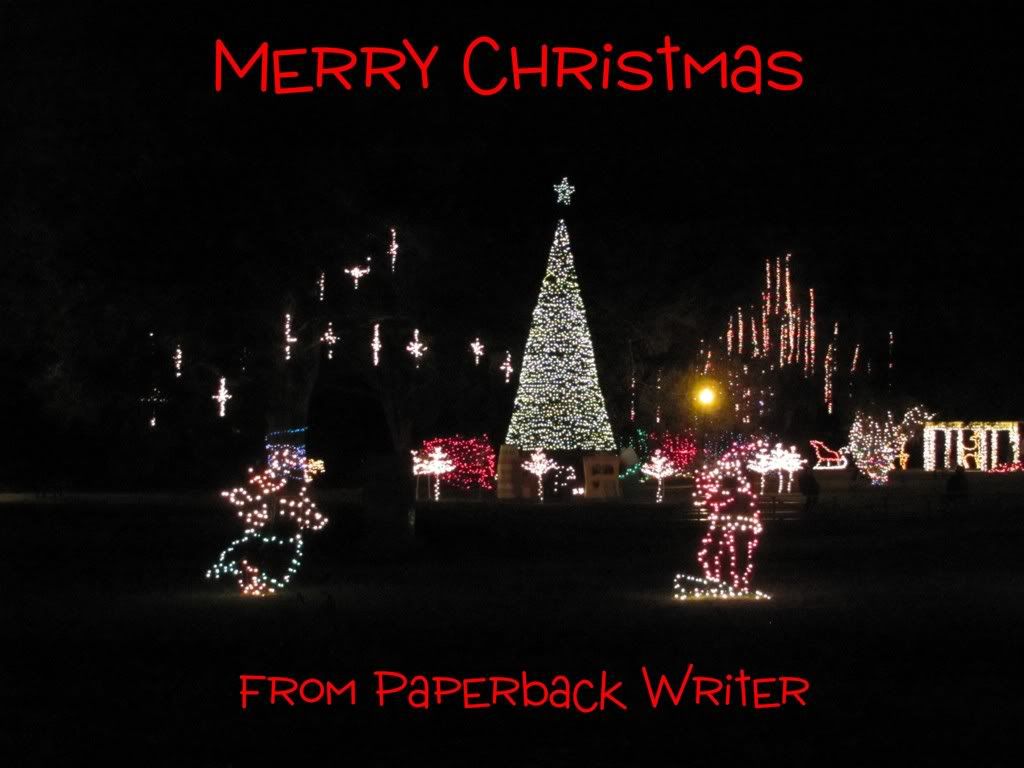
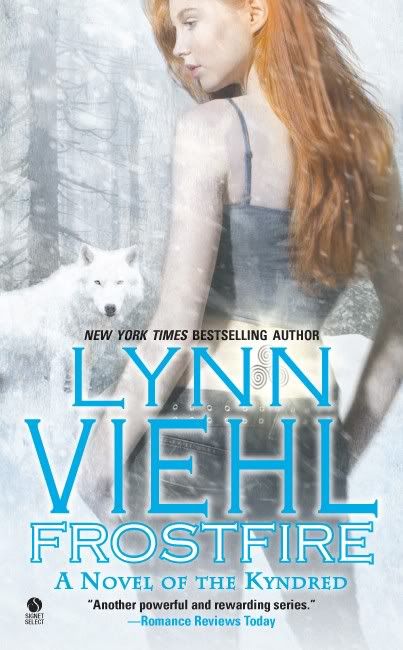
 Yesterday I made candy for the first time: honeycomb toffee brittle. My mother makes candy (her fudge is to die for), and so do all the other women in my family; I've never tried. This is because I am occasionally clumsy in the kitchen, and in the past the thought of handling substances that are liquid and not far from the melting temperature of tin has always discouraged me. Besides, I can buy candy any time.
Yesterday I made candy for the first time: honeycomb toffee brittle. My mother makes candy (her fudge is to die for), and so do all the other women in my family; I've never tried. This is because I am occasionally clumsy in the kitchen, and in the past the thought of handling substances that are liquid and not far from the melting temperature of tin has always discouraged me. Besides, I can buy candy any time. A half-hour later, when the candy was cool enough, I broke it into pieces and passed it around. My daughter didn't care much for it; her best friend thought it was amazing. As for me, well, it melted in my mouth, and was so rich and carmel-chocolatey that it made me shiver. It also stuck to my teeth, and had a trace of baking soda taste to it, and from the dense texture I think I stirred it too much that last time. I also know I've never enjoyed a piece of candy so much in my life.
A half-hour later, when the candy was cool enough, I broke it into pieces and passed it around. My daughter didn't care much for it; her best friend thought it was amazing. As for me, well, it melted in my mouth, and was so rich and carmel-chocolatey that it made me shiver. It also stuck to my teeth, and had a trace of baking soda taste to it, and from the dense texture I think I stirred it too much that last time. I also know I've never enjoyed a piece of candy so much in my life.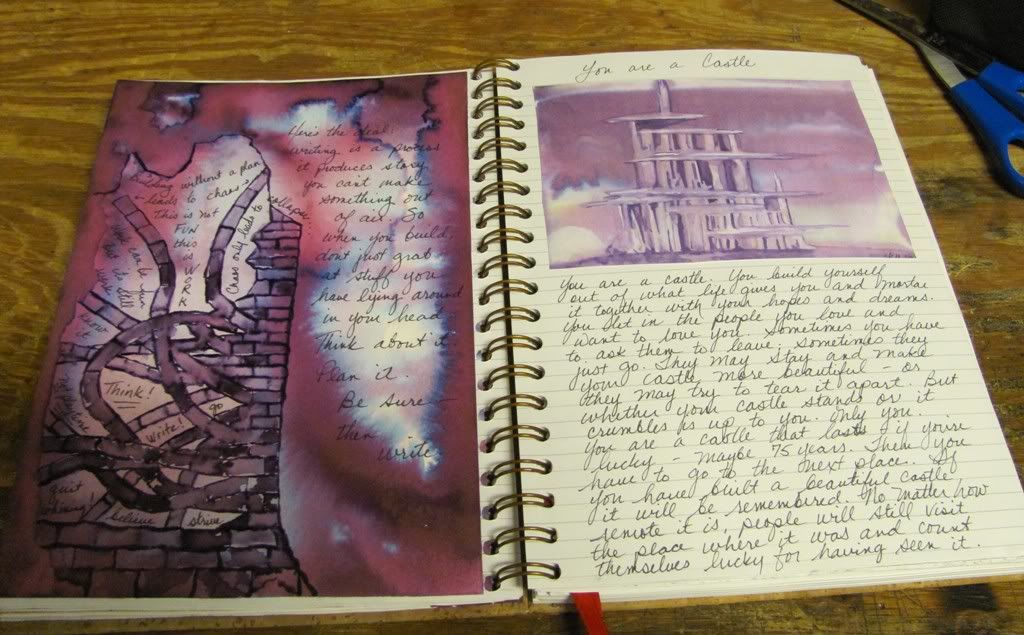 To give you some perspective, here is a typical entry in one of my own journals. I write about my family, friends, books, music, art, world events, my job, and all the ordinary (and probably boring to anyone else) things that go to make up a life. After getting into art journaling a few years back, I also
To give you some perspective, here is a typical entry in one of my own journals. I write about my family, friends, books, music, art, world events, my job, and all the ordinary (and probably boring to anyone else) things that go to make up a life. After getting into art journaling a few years back, I also 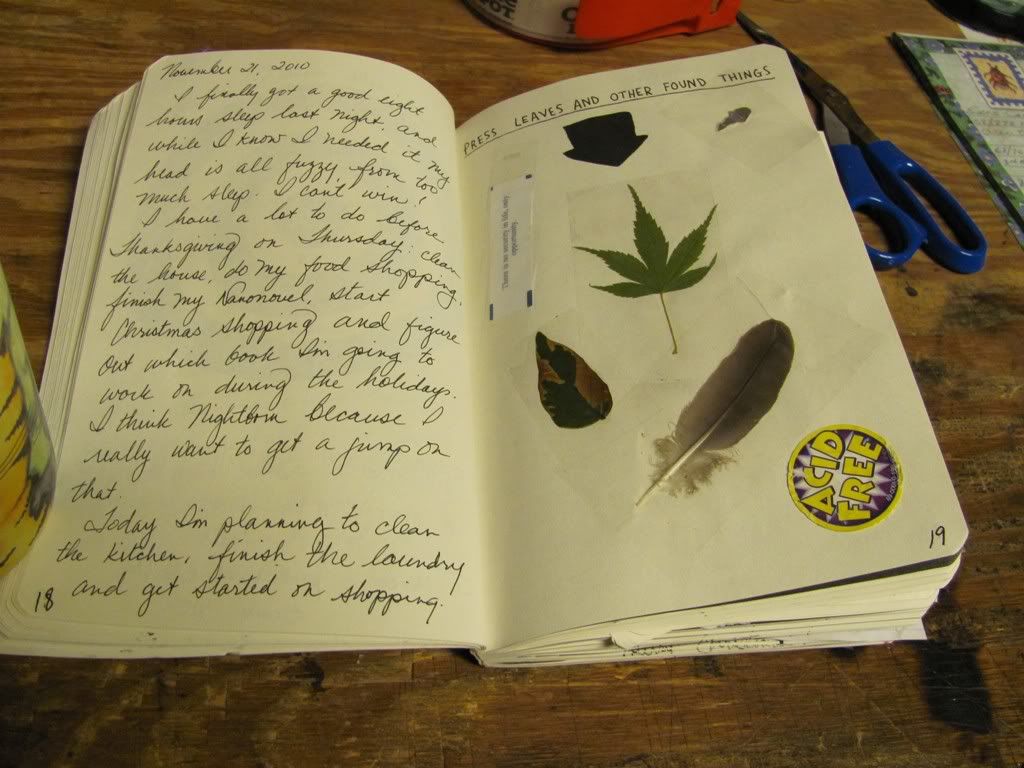 Every other page in Wreck This Journal listed instructions of what to do on that page or to the page, i.e. "drip something here (ink, paint, tea) close the book to make a print" and "tear this page out, put it in your pocket, put it through the wash, stick it back in." I dutifully followed the instructions, going so far as to spend a half hour reconstructing the page my washing machine turned into mush.
Every other page in Wreck This Journal listed instructions of what to do on that page or to the page, i.e. "drip something here (ink, paint, tea) close the book to make a print" and "tear this page out, put it in your pocket, put it through the wash, stick it back in." I dutifully followed the instructions, going so far as to spend a half hour reconstructing the page my washing machine turned into mush.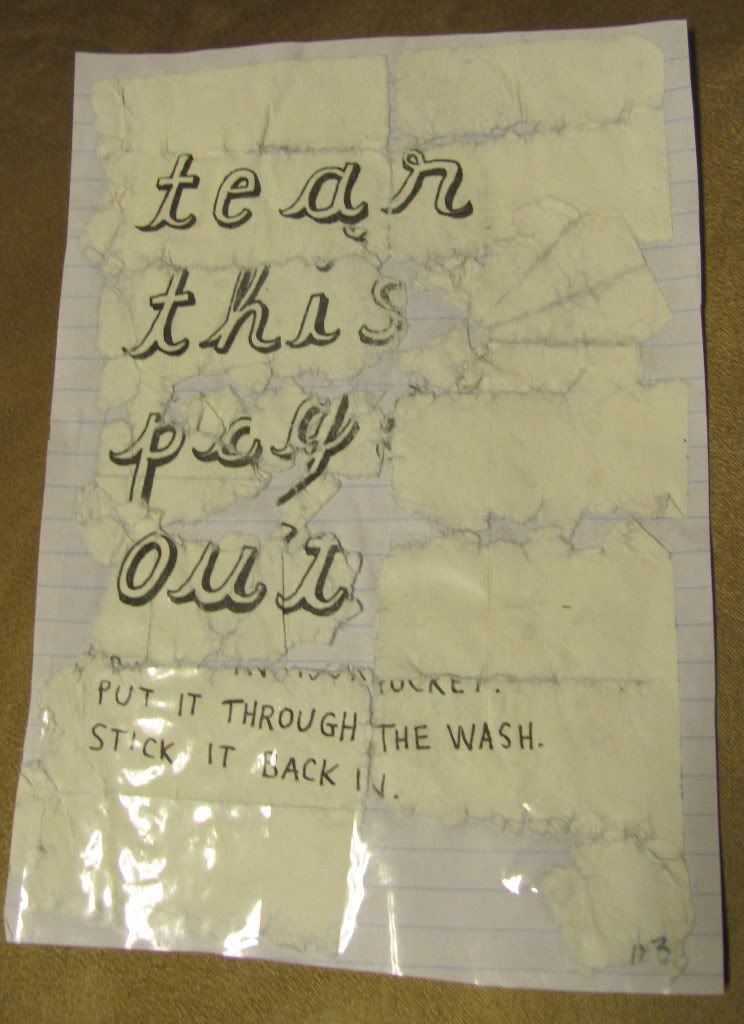 I did things I've never done with journals, though, lots of them. I sewed a page, picked up the journal with my feet, played golf with a page, slept with the journal under my pillow (now there's something I didn't do even when I was a teenager) and covered two pages with office supplies. I also added bird feathers I found in the yard (safely and sanitarily encased & sealed under clear packing tape) and made a drawing using my own hair.
I did things I've never done with journals, though, lots of them. I sewed a page, picked up the journal with my feet, played golf with a page, slept with the journal under my pillow (now there's something I didn't do even when I was a teenager) and covered two pages with office supplies. I also added bird feathers I found in the yard (safely and sanitarily encased & sealed under clear packing tape) and made a drawing using my own hair. 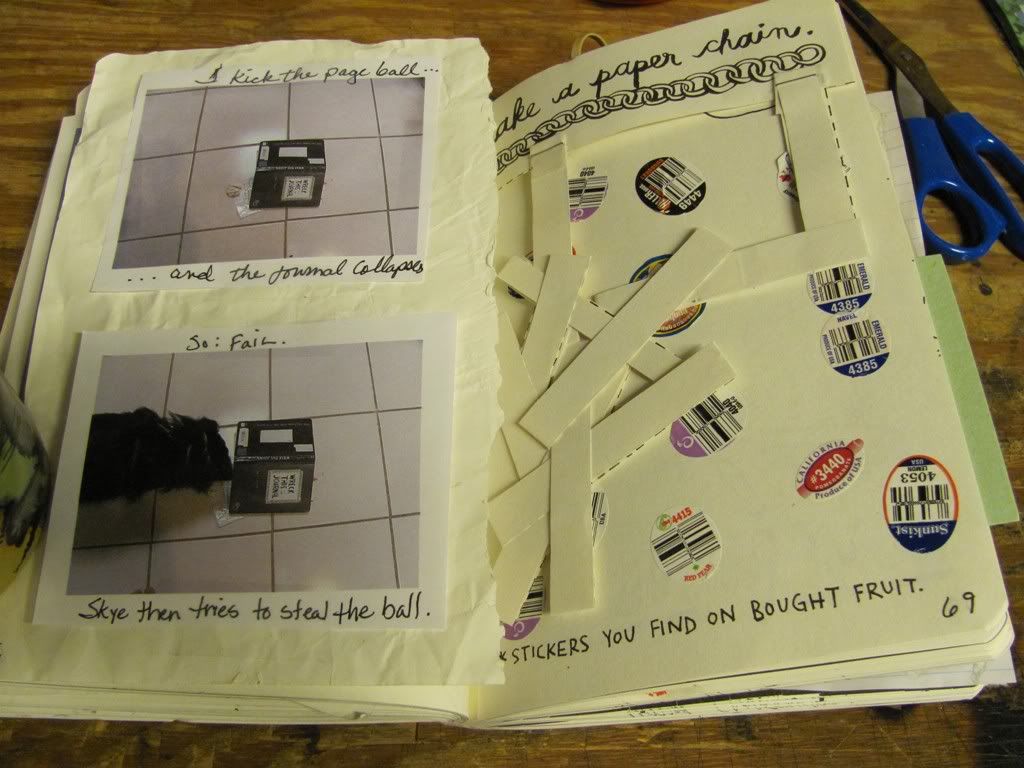 Toward the end of finishing the journal my aversions made a light bulb go off. I've always believed that I write my private journals for myself, but maybe subconsciously I want them to be read by someone else someday. After thirty-six years of keeping a daily journal, you'd think I'd have realized that, but honestly I hadn't.
Toward the end of finishing the journal my aversions made a light bulb go off. I've always believed that I write my private journals for myself, but maybe subconsciously I want them to be read by someone else someday. After thirty-six years of keeping a daily journal, you'd think I'd have realized that, but honestly I hadn't.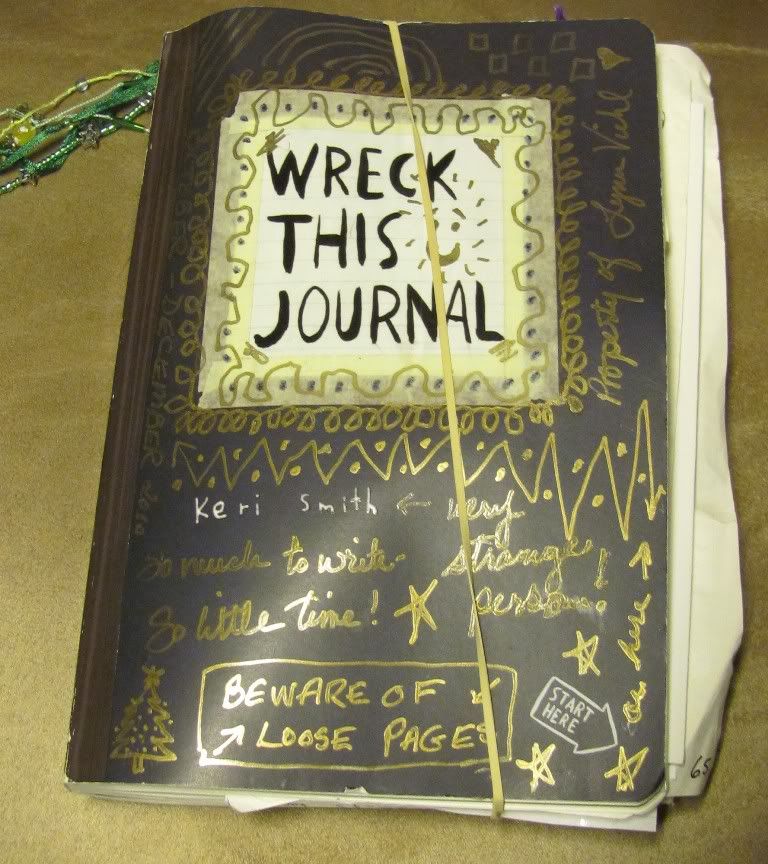 Guided journals often prompt us to vent our worries and explore our imaginations, but Keri Smith invites us to rethink our attitudes toward the journal itself. Through her zany instructions she reminds us that a journal can be more than a thought depository or a sketch book; it can become a golf ball, a pull-toy, a bulls-eye, and just about anything else we want to play with.
Guided journals often prompt us to vent our worries and explore our imaginations, but Keri Smith invites us to rethink our attitudes toward the journal itself. Through her zany instructions she reminds us that a journal can be more than a thought depository or a sketch book; it can become a golf ball, a pull-toy, a bulls-eye, and just about anything else we want to play with. 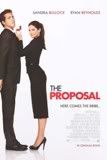


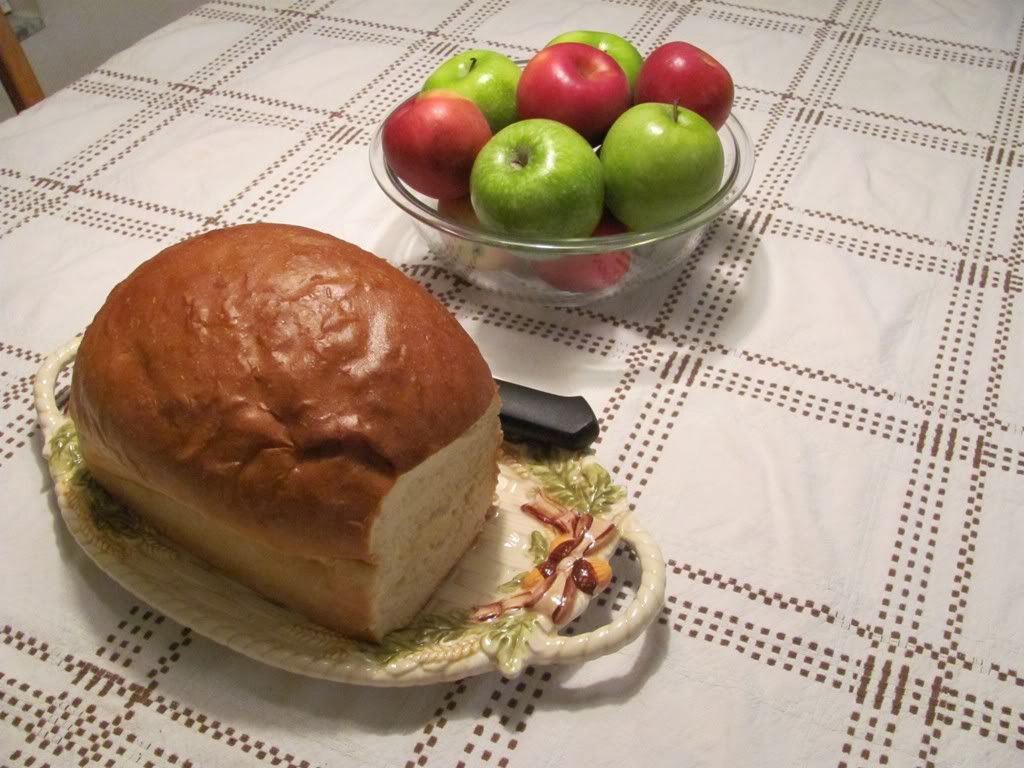 This may look like a loaf of bread, but it's not. It's a gift. A delicious, homemade, still-warm-from-the-oven gift. Someone couldn't wait to taste it and nipped an end piece the minute it touched a flat surface in the kitchen. Okay, it was me, but I live with another crust lover. If I don't nick one for myself my guy will eat both.
This may look like a loaf of bread, but it's not. It's a gift. A delicious, homemade, still-warm-from-the-oven gift. Someone couldn't wait to taste it and nipped an end piece the minute it touched a flat surface in the kitchen. Okay, it was me, but I live with another crust lover. If I don't nick one for myself my guy will eat both.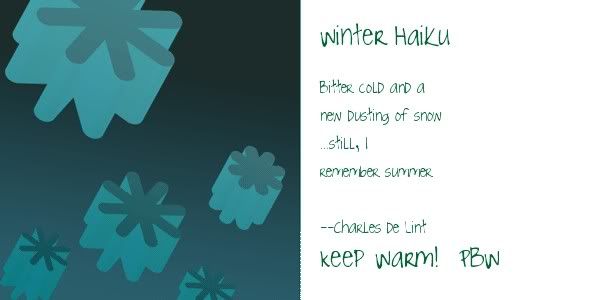
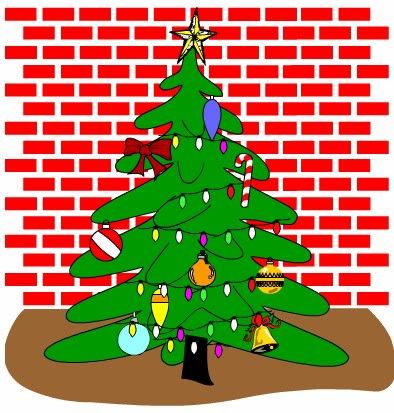

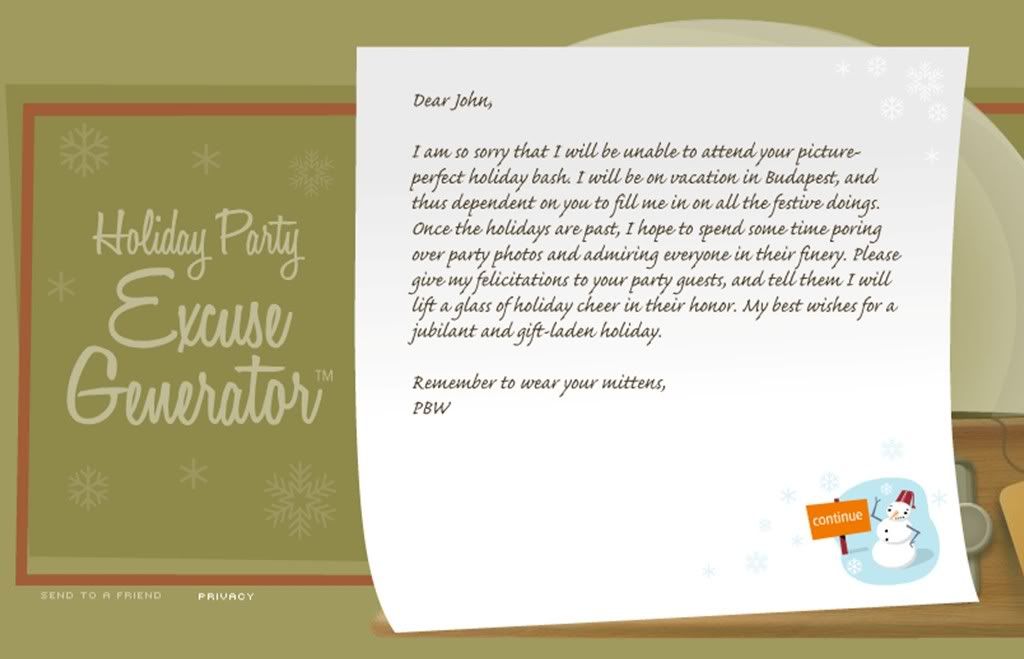
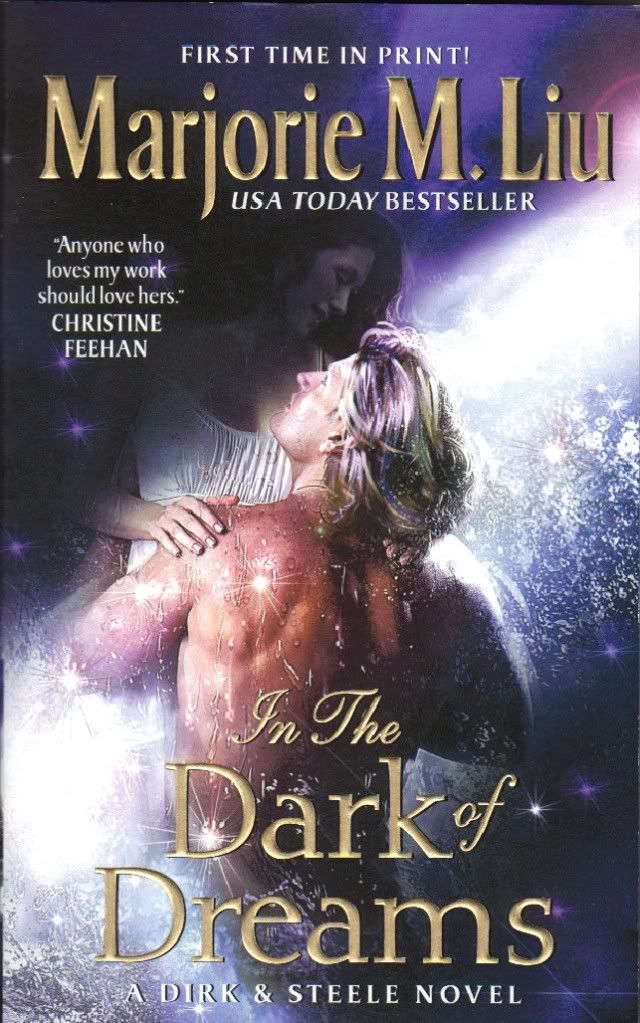 One book I'm giving this year to all the paranormal fantasy and romance lovers on my list is
One book I'm giving this year to all the paranormal fantasy and romance lovers on my list is 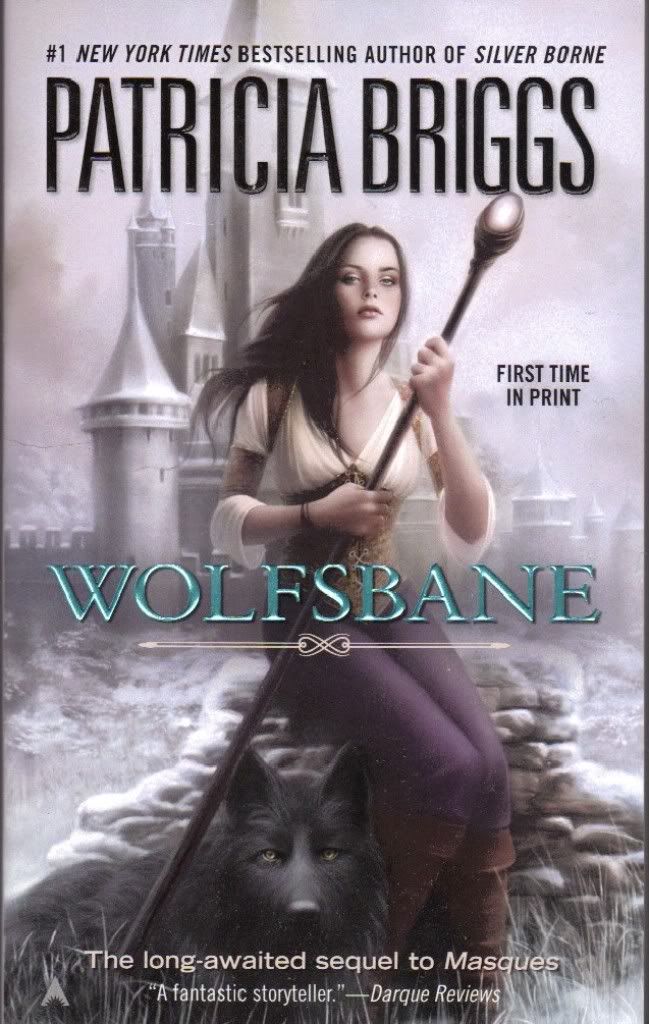 Patricia Briggs also has a new novel on the shelves,
Patricia Briggs also has a new novel on the shelves, 
